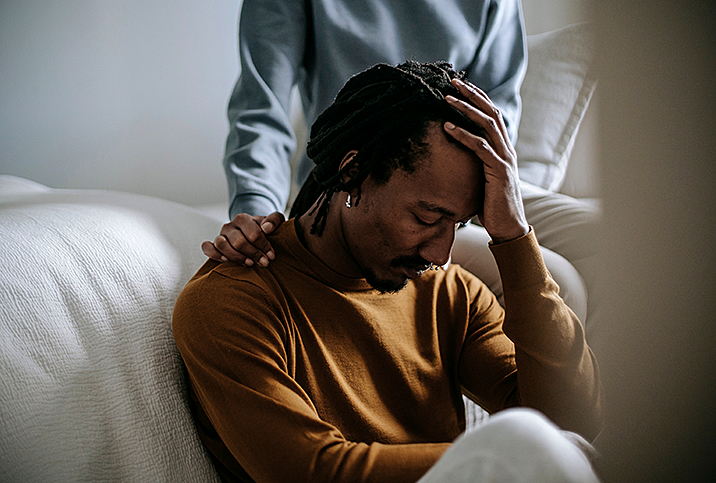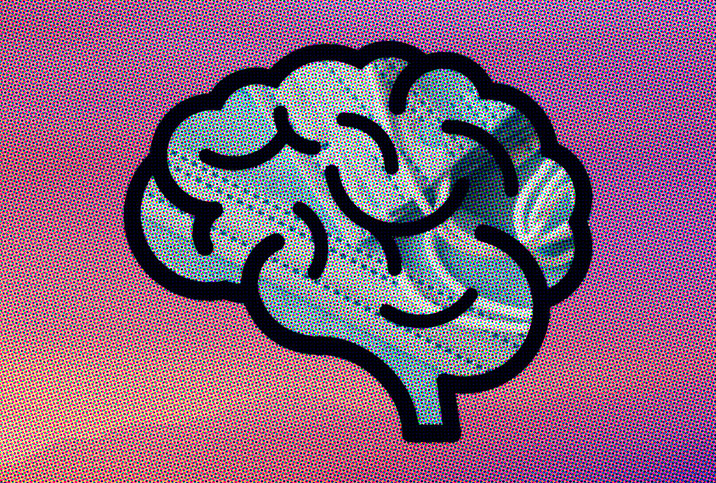Mind Your Mind and Avoid Common Psychological Causes of ED

Recent research shows the causes of erectile dysfunction (ED) are far more complex than previously thought. High blood pressure, heart disease, diabetes and other physical conditions contribute to ED in ways we're only beginning to understand.
Of course, the body and mind work together to achieve erections and incite a sexual response. If you doubt that, think about all the times you've heard the old tip that claims "thinking about baseball" can delay ejaculation. There's a kernel of truth in there.
And as physical conditions and their effects on ED become better understood, researchers are broadening our understanding of the psychological conditions that can exacerbate the problem.
Anxiety
According to a study published in the Journal of Sexual Medicine, about 25 percent of men under age 40 experience erectile dysfunction. It's likely these younger men don't have as many of the underlying physical conditions found in older men, such as high blood pressure and diabetes. Their ED likely has more to do with psychological causes, such as anxiety, which is thought to be one of the leading psychological reasons ED occurs, and with good reason: It feeds on itself.
Erections function correctly due to complex interactions between bodily systems and processes, including the nervous system, blood vessels, hormones, emotions, muscles and visual/mental stimulation. Anxiety can get in the way of your brain communicating properly with the systems and short-circuit the process.
If anxiety-based ED occurs once, it can trigger the same feelings of anxiety the next time—often referred to as performance anxiety—leading to another round of psychologically based ED. As a report in the International Journal of Impotence Research put it, this process can lead to "a vicious cycle of increased uneasiness, distance and conflicts," damaging relationships and leading to less frequent sex.
Stress
A close cousin of anxiety is stress, and it's cited nearly as frequently as anxiety as a psychological cause of ED. These are difficult times, with a global pandemic, uncertain economies, job precarity, overwork and a lack of sleep haunting many people. Having these issues front and center in your mind when you're trying to have sex can cause the same effects as anxiety.
A 2013 study in the Journal of Sexual Medicine indicated veterans with PTSD were three times more likely to experience ED. The study's authors suggested stress and anxiety can alter hormone levels in your body over the long term, interfering with processes such as erectile function.
Depression
Another curse of modern life is depression. According to a 2017 report cited by the National Institute of Mental Health, 17.3 million Americans, representing 7.1 percent of the adult population, suffered a major depressive episode at least once that year.
If you look at how closely associated depression is with ED, it's perhaps unsurprising how common depression is in ED sufferers. A 2019 Chinese study published in the journal Andrologia found a whopping 79 percent of men with ED also had depression and anxiety.
Guilt or low self-esteem
Men who suffer from ED may also have feelings of guilt or poor self-worth. This can stem from feeling unable to please their partner or unrelated reasons that manifest in the bedroom. It's worth noting the Diagnostic and Statistical Manual of Mental Disorders (DSM-5) lists inappropriate guilt and feelings of worthlessness as clinical criteria for diagnosing a major depressive disorder, another major factor in psychologically based ED.
Relationship issues
Having a happy, loving relationship isn't always the easiest feat in the world. Pent-up or unexpressed feelings of frustration or discontent with your partner can manifest as episodes of ED. Emotions are a critical component to healthy sex, but with negative feelings poisoning the well, it's not difficult to imagine sex not going as well as it should.
Giddy psychologist Dr. Susan Ansorge talks about creating normalcy in a relationship despite the occurrence of erectile dysfunction. Watch the video here to learn more.
As with all psychological issues, the essential component to healing psychologically based ED is talking openly and honestly. Reaching out to your partner and seeing a therapist—possibly even a sex therapist—can help put all of these issues in perspective.
A big problem for men with ED is keeping it inside like a secret, poisonous ball of shame. Bringing it into the light, facing it and working through it, rather than avoiding it, makes dysfunction more manageable.
Relationships can be strained by ED, but it's a challenge that can definitely be worked through to produce an even stronger relationship afterward.


















